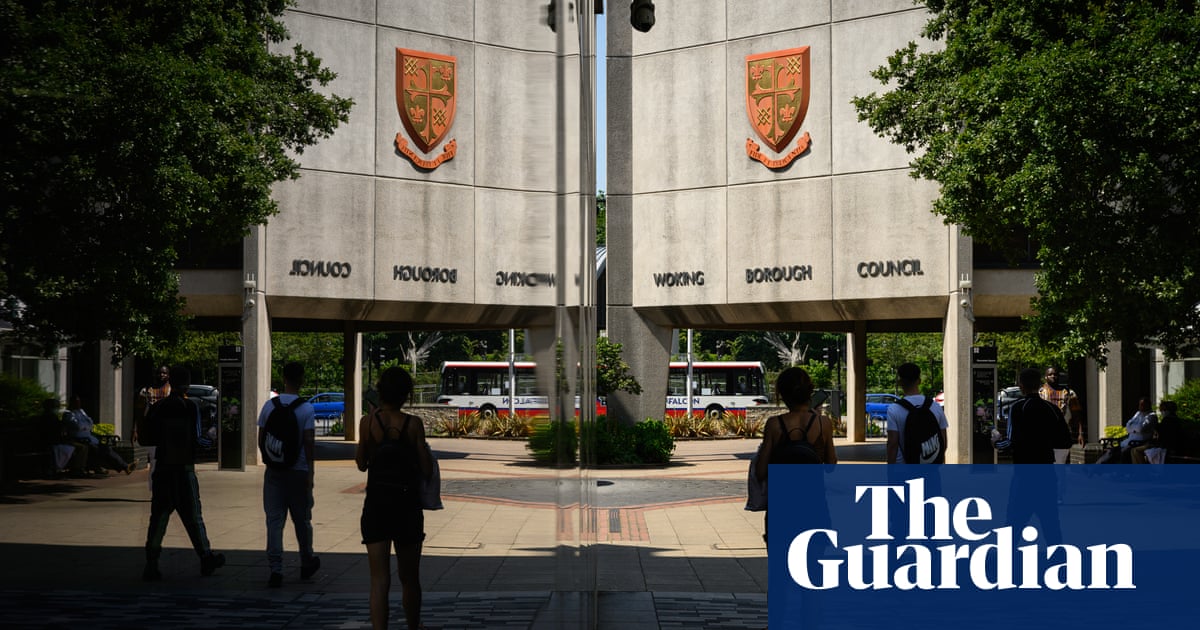
Hundreds of millions of pounds of local transport funding in England could be cut in next week’s spending review despite having been agreed with regional mayors, putting bus, tube and tram improvements at risk.
The mayors, most of whom are Labour, are engaged in a last-minute lobbying campaign to stop the Treasury raiding their transport budgets as Rachel Reeves looks for immediate savings.
Officials say that without this moneybus subsidies, rolling out electric buses and schemes to increase walking and cycling could all be delayed or cut.
“The mayors have been pushing back on the idea that their sustainable budgets should be cut, not least because many of them thought the money was guaranteed until 2027,” said one official.
One mayoral aide said: “We’re worried about what might happen in the budget on transport funding. There are rumours flying around and it’s destabilising.”
A government source said there were no plans to change so-called city region sustainable transport settlements, which provide multi-year packages for some transport schemes, but declined to speculate what else might happen.
The chancellor will announce a spending review to cover this financial year and next at the same time as her 30 October budget, and is looking for billions of pounds in cuts to cover what she says is a £22bn shortfall in the government accounts.
Negotiations have been fraught, not least because cabinet ministers have argued their capital spending allocations should be protected given Reeves has promised to invest in infrastructure in the long term.
Last week, three cabinet ministers – the justice secretary, Shabana Mahmood; the deputy party leader and housing secretary, Angela Rayner; and the transport secretary, Louise Haigh – wrote to Keir Starmer to complain about the spending reductions they were being asked to make.
Secretaries of state have now agreed their overall funding settlements, though not every individual programme has been tied down yet.
Mayors are lobbying heavily to make sure their transport budgets are not cut back, especially in areas where the money has already been allocated as part of nationally agreed sustainable transport schemes.
Billions of pounds have already been allocated in settlements due to last until 2027: funding schemes such as train improvements and electrification of bus depots to charge new zero-emission buses.
Industry sources believe Reeves is looking in particular at reducing an additional £5bn Rishi Sunak promised to city regions after axing the northern leg of HS2.
Sunak then called the scheme a “new plan for transport that will transform roads, rail and buses across the north”. Experts said at the time, however, his promises had not been properly funded.
In London, where day-to-day spending is funded solely through fares and other operating income such as the congestion charge, and the Treasury is asked to help fund capital spending, Sadiq Khan is said to be concerned that squeezed budgets could delay tube line extensions. The capital’s mayor has asked the Treasury for what he believes will be enough money to fulfil contracts that have already been signed, including to upgrade the Bakerloo and Piccadilly lines, as well as new buses.
Several mayors worried they may have to raise fares to pay for the work needed.
The government has provided money for several mayoral authorities to cap bus fares at £2, and some fear funding will not be renewed after it runs out at the end of the year, leaving them the choice of raising fares or cutting other programmes.
Mayors in several city regions have been reallocating capital spending to cover day-to-day costs such as the fare cap, and are worried they will not be able to do so in the future.
The Labour West Midlands mayor, Richard Parker, is understood to be particularly concerned about bus services, which the combined authority is subsidising by £50m-£70m a year.
Though the current budget for sustainable transport is not being cut, local leaders believe the Department for Transport is hoping that some of the agreed budget can be used to continue to fill the bus revenue funding gap, meaning cuts elsewhere.
Jason Prince, the director of the Urban Transport Group, which represents transport authorities across the UK, said: “There is an imperative for the chancellor to confirm core transport funding. Without it, the opportunity for our city regions to deliver economic growth and support the government’s wider missions could be undermined.”
A Treasury spokesperson said: “Boosting transport remains key for growth, and city region sustainable transport settlements will continue to play a key part in delivering this.”












